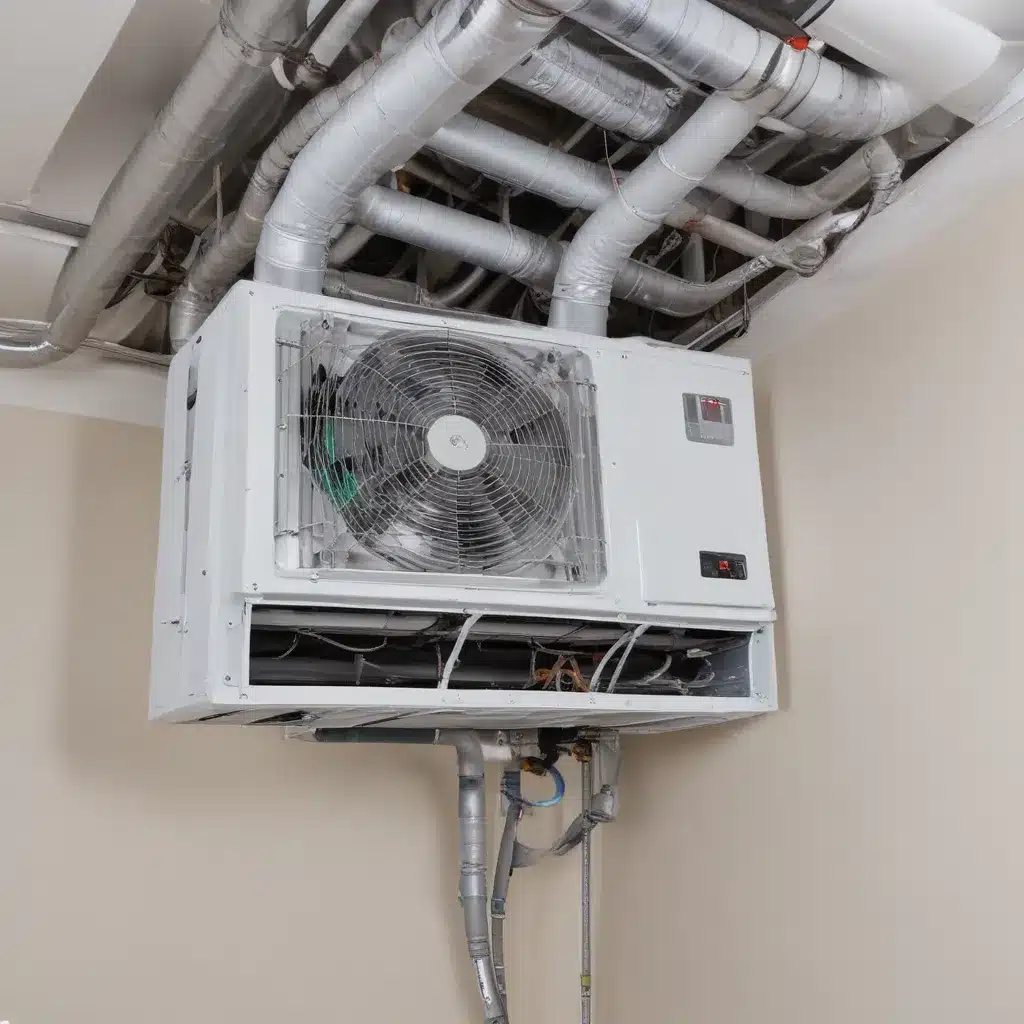
As an experienced HVAC specialist, I understand the importance of preparing commercial properties for the winter season. Frozen pipes can wreak havoc on your business, leading to extensive water damage, disrupted operations, and costly repairs. That’s why it’s crucial to take a proactive approach to winterising your HVAC systems and plumbing infrastructure.
Now, this might seem counterintuitive when dealing with air conditioning systems…
Preventative Maintenance
The first step in safeguarding your commercial property is to conduct thorough inspections and maintenance on your HVAC components. This includes:
Inspecting and Cleaning HVAC Components: double-check that your furnace, boiler, and other heating units are clean, properly calibrated, and running efficiently. Remove any debris or obstructions that could impede airflow or cause malfunctions.
Insulating Exposed Pipes and Ducts: Pay close attention to areas where pipes and ductwork are exposed to the elements, such as in the attic, crawl space, or along exterior walls. Wrap these vulnerable components in high-quality insulation to prevent freezing.
Scheduling Professional Servicing: Enlist the help of a trusted HVAC technician to perform a comprehensive inspection and maintenance service. They’ll be able to identify any potential issues and make necessary adjustments to double-check that your systems are winter-ready.
System Efficiency Techniques
Optimising the efficiency of your HVAC systems is crucial for maintaining a comfortable, consistent temperature throughout your commercial property. Consider implementing the following strategies:
Programmable Thermostat Installation: Upgrade to a programmable or smart thermostat that allows you to automatically adjust temperatures based on occupancy and usage patterns. This helps you avoid wasting energy when the building is unoccupied.
Ductwork Sealing and Insulation: Inspect your ductwork for any gaps or leaks that could be allowing heated air to escape. Seal these problem areas and insulate the ductwork to improve air circulation and heating efficiency.
Optimising Airflow and Ventilation: double-check that your HVAC system is properly balanced, with the right amount of airflow to each room or zone. This helps prevent hot and cold spots and ensures your property stays comfortable and energy-efficient.
Heating System Preparations
Proper maintenance and winterisation of your heating systems are essential for protecting your commercial property from the cold. Here’s what you should focus on:
Furnace and Boiler Maintenance: Have your furnace or boiler thoroughly cleaned, tuned, and inspected for any signs of wear or damage. Check for leaks, double-check that proper airflow, and replace any worn components.
Checking for Leaks and Damage: Inspect your heating system for any signs of leaks or cracks that could worsen in the cold weather. Address these issues promptly to prevent costly repairs and potential water damage.
Upgrading to High-Efficiency Models: If your heating system is older and less efficient, consider upgrading to a newer, high-efficiency model. This can significantly reduce your energy costs and improve your property’s overall climate control.
Wintertime Energy-Saving Strategies
Implementing energy-saving techniques can help you manage your heating costs during the winter months while still maintaining a comfortable indoor environment. Consider the following approaches:
Programmable Temperature Settings: Use your thermostat’s programmable features to automatically adjust temperatures based on occupancy and usage patterns. This allows you to lower the temperature when the building is unoccupied and then gradually raise it before employees arrive.
Proper Insulation and Air Sealing: double-check that your commercial property is well-insulated and that any air leaks around windows, doors, and other openings are properly sealed. This helps retain heated air within the building, reducing the strain on your HVAC system.
Alternative Heating Options: Explore supplementary heating solutions, such as space heaters or radiant floor heating, to provide targeted warmth in specific areas without overworking your central heating system.
Air Conditioning Solutions
While your main focus may be on heating during the winter, it’s essential to also protect your air conditioning systems to prevent freeze-ups and double-check that proper indoor air quality.
Protecting Outdoor Units: Cover and insulate your outdoor AC compressors to shield them from the elements. Additionally, clear any debris or leaves from around the condenser coils to maintain efficient airflow.
Preserving Indoor Air Quality: Change your air filters regularly to maintain optimal indoor air quality. Monitor humidity levels and double-check that proper ventilation to prevent mold growth and maintain a comfortable, healthy environment.
Upgrading to Smart HVAC Technologies: Consider upgrading to smart HVAC systems that offer precise temperature and humidity control, remote monitoring, and energy-saving features. These advanced solutions can help you better manage your commercial property’s climate while reducing energy costs.
Optimising Energy Efficiency
Maximising the energy efficiency of your HVAC systems is not only good for the environment but also beneficial for your bottom line. Take the following steps to evaluate and improve your energy performance:
Conducting Energy Audits: Enlist the help of a professional energy auditor to assess your commercial property’s energy usage and identify areas for improvement. They can provide recommendations for upgrades and modifications to enhance efficiency.
Calculating Potential Cost Savings: Determine the potential cost savings associated with implementing energy-efficient HVAC upgrades or adopting sustainable heating and cooling solutions. This can help justify the investment and demonstrate the long-term benefits to your business.
Sustainable HVAC Upgrades: Consider transitioning to high-efficiency heating and cooling systems, such as geothermal heat pumps or integrated renewable energy solutions. These cutting-edge technologies can significantly reduce your carbon footprint and operational costs while providing reliable climate control.
By prioritizing HVAC winterisation, focusing on energy efficiency, and implementing proactive maintenance strategies, you can safeguard your commercial property and double-check that uninterrupted operations throughout the cold season. Remember, preparation is key, and with the right approach, you can keep your business cozy and your pipes unfrozen, no matter how low the mercury drops.
For more information on how US Air Contractors can assist with your commercial HVAC needs, visit usaircontractors.com.
Tip: Service your HVAC system regularly at least twice a year


